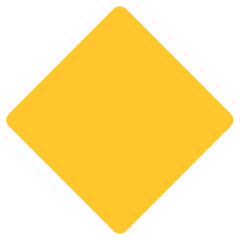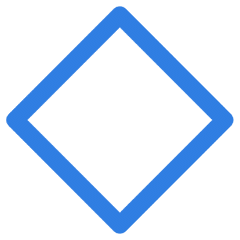MONDAY to FRIDAY – 8:30am to 6pm
SATURDAY – 8:30am to 12pm
Suite 6, Ground Floor 32 Florence St HORNSBY NSW 2077
Florence Street Family Practice provides senior health services for older adults in the Hornsby area. Our experienced team of doctors and nurses offers personalised care to support healthy ageing and independence. We manage common age-related conditions such as chronic diseases, mobility issues, hearing loss, and cognitive decline. Through regular health checks, preventive care, and tailored treatment plans, we help seniors maintain their well-being and quality of life with compassion and professionalism.
Call (02) 9476 2255 for senior health services in Hornsby. Our expert team provides compassionate care for seniors, managing chronic conditions, mobility, hearing, and overall well-being. Let us help you or your loved ones live a healthier, more independent life.



Regular check-ups and preventive health screenings can help you stay well for longer. Here’s what you should consider:
We at Florence Street Family Practice are here to support you or your loved ones through every stage of ageing. Our dedicated and experienced team provides personalised senior health care, allowing for independence, and continued enjoyment of life. From managing chronic conditions to regular health checks and preventive care, we focus on what matters most – your well-being and quality of life. Here is what to look out for:
Alzheimer’s disease is a progressive neurological condition that damages brain cells, leading to problems with memory, thinking, language, and behaviour. It is the most common condition seen in older adults and gradually affects a person’s ability to carry out everyday activities.
Symptoms of Alzheimer’s Disease
Stages of Alzheimer’s Disease
How Alzheimer’s Disease Can Be Managed
While there’s no cure, early treatment can improve the quality of life. Medications may slow progression, and memory support programs, daily routines, and family involvement help maintain independence and well-being for as long as possible.
Falls are unexpected drops to the ground that can cause injury in older adults. They may lead to broken bones, hospital stays, or reduced mobility, affecting independence and quality of life. Prevention is key to staying safe and active.
Risk Factors for Falls
How to Prevent Falls in Seniors
Staying active with balance and strength exercises, removing home hazards, using mobility aids correctly, and having regular vision and medication checks can help reduce fall risks. A safe, well-lit environment and support from carers or family are also important.
Incontinence is the inability to fully control bladder or bowel movements. It’s common in older adults and may lead to leaks, discomfort, and reduced confidence. With the right support, it can be managed to maintain quality of life.
Types of Incontinence
Common Causes of Incontinence in Seniors
Treatment & Management Options
Managing incontinence involves pelvic floor exercises, bladder training, lifestyle changes, medications, or absorbent products. In some cases, surgical options may be recommended. A doctor can help choose the most suitable approach.
Dementia is a group of conditions that affect memory, thinking, behaviour, and daily functioning. It’s caused by damage to brain cells and is more common in older adults.
Common Symptoms of Dementia
Types of Dementia
Stages of Dementia Progression
Treatment and Management Options
While there’s no cure, dementia symptoms can be managed with medications, routine support, memory therapy, and carer assistance. Early diagnosis helps with care planning and maintaining independence for longer.
Glaucoma is an eye condition where pressure builds up in the eye, damaging the optic nerve. If untreated, it can lead to vision loss or blindness.
Types of Glaucoma
Common Symptoms and Signs
Risk Factors for Developing Glaucoma
Treatment and Management Options
Early treatment can slow the progression. Options include daily eye drops, oral medications, laser treatment, or surgery to reduce eye pressure and protect vision. Regular eye checks are key to early detection.
Hearing loss is a reduced ability to hear sounds, making it harder to follow conversations or respond to everyday noises. It’s common in older adults and may affect their quality of life if untreated.
Types of Hearing Loss
Symptoms and Signs of Hearing Loss
Common Causes of Hearing Loss in Seniors
Treatment and Management Options
Treatment depends on the cause. Hearing aids, cochlear implants, or earwax removal can help. Regular hearing tests and support from health professionals improve communication and quality of life.
Parkinson’s disease is a progressive neurological disorder that affects movement, coordination, and balance. It occurs when brain cells that produce dopamine are damaged.
Common Symptoms of Parkinson’s Disease
Causes and Risk Factors
Stages of Parkinson’s Disease Progression
Treatment and Management Options
While there’s no cure, medications can ease symptoms. Physical therapy, occupational therapy, and regular exercise support mobility. Ongoing care helps improve daily function and quality of life.
Rheumatoid arthritis (RA) is an autoimmune condition where the immune system attacks the joints, causing inflammation, pain, and stiffness. It can affect mobility and lead to joint damage over time.
Common Symptoms of Rheumatoid Arthritis
Causes and Risk Factors
Treatment and Management Options
Treatment includes anti-inflammatory or disease-modifying medications, physiotherapy, joint protection techniques, and lifestyle changes to reduce flare-ups and maintain joint function. Early diagnosis improves long-term outcomes.
We offer a wide range of services for seniors, including chronic disease management, regular health checks, and tailored support for conditions such as Alzheimer’s, arthritis, and diabetes, helping maintain independence and well-being.
Our team includes experienced doctors, nurses, and allied health professionals who understand the unique needs of older adults. They provide respectful, personalised care focused on maintaining health, independence, and quality of life.
We support overall well-being by focusing on physical, mental, and emotional health. Services include fall prevention, mobility support, hearing and vision checks, and regular mental health assessments tailored to seniors’ needs.
Located in the heart of Hornsby, our clinic is easy to reach by public transport or car. We offer flexible appointment times, including online booking, to suit seniors and their families, making regular care simple and stress-free.
Regular check-ups, recommended vaccinations, and health screenings help detect issues early. Lifestyle advice supports healthy aging, reduces the risk of chronic disease, and helps older adults stay independent and active in daily life.
Each care plan is personalised to match each senior’s specific health needs, goals, and preferences.. The focus is on shared decision-making, regular check-ins, and support that respects individual values and lifestyle choices.
Whatever your age, you can enjoy the benefits of physical activity. There’s a host of health reasons to stay active and it doesn’t have to be ‘serious business’ — being active can be fun, especially if you can socialise at the same time. Exercise also helps keep your mind active and improves your quality of life.
Conversely, spending a lot of time sitting down (being sedentary) may increase the risk of health conditions. So, it’s a good idea to break up long periods of sitting with physical activity. Even a few minutes of walking or stretching is beneficial.
Some types of physical activity, such as resistance training and flexibility exercises, can improve physical changes that come with ageing.
Most people lose some muscle mass, bone density and flexibility as they age. Chronic health problems can also contribute to weakness and frailty.
Physical activity has been shown to improve overall health, reduce the chance of chronic health conditions and reduce frailty. This means that staying active may help you live longer with a better quality of life.
You should aim for about 30 minutes of moderate-intensity physical activity every day. Moderate-intensity exercise should make you feel a bit breathless, but you should still be able to talk comfortably.
Incorporate different types of physical activity into your daily routine. This will keep it interesting and easier to stick to over time.
There are 4 main types of physical activity that are important for people of all ages.
Help keep your heart and lungs healthy. This includes:
Household chores such as gardening and cleaning can also be a great cardio workout. Low-impact activities such as swimming can be beneficial for people who find movement painful because of health conditions such as .
You don’t have to do all your activity in one session per day — you can spread it out. For example, 10 minutes of cardio 3 times a day, or 15 minutes twice a day
Help your muscles and bones stay strong. Strength training and weight-bearing exercise are especially helpful at increasing your bone density and reducing the risk of falls among people with osteoporosis.
Strength exercises include:
Aim to build strength exercises into your routine about 2 to 3 times a week.
Incorporate gentle stretching and bending exercises that help you move more easily. This might include:
Try to do some stretching exercises every day. You can even stretch while watching TV or waiting for the kettle to boil — you can follow the diagrams here.
Help improve your balance, which can help prevent falls. They include:
Remember, physical activity can be varied, and you can exercise outside of a gym or classes. There are also online fitness tools and programs you can use at home.
Even people who are less mobile or have a disability can find ways to keep active. Find an exercise program that is tailored to people at a similar age and fitness level as you.
If you’re struggling to find an activity that’s right for you, ask your doctor, exercise physiologist or physiotherapist.
Your health is in your hands, and small, consistent steps can help you stay independent and active for years to come. We are here to support senior men’s health and senior women’s health. Need advice? Book a check-up with us at Florence St Family Practice and take charge of your wellbeing today!
Want to know if your treatment is bulk billed? You are eligible if you are 70 years of age and over, registered with us and in MyMedicare or a Veteran with a Department of Veterans Affairs (DVA) white or gold card. You can also find out more about government concessions and income support payments here.